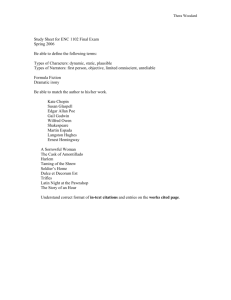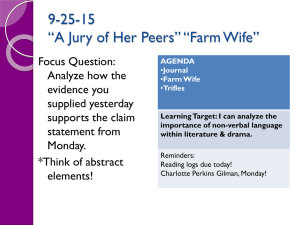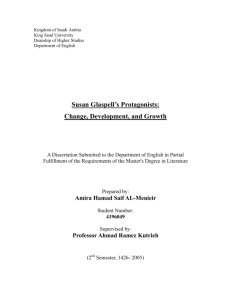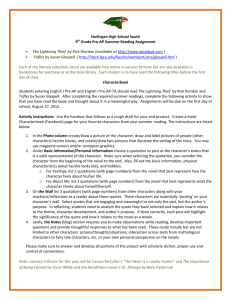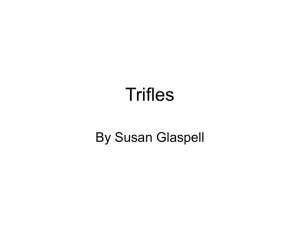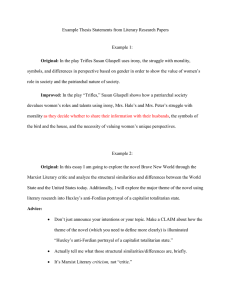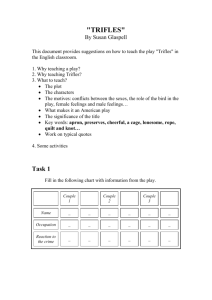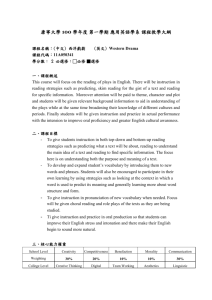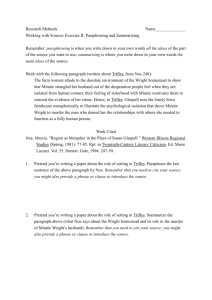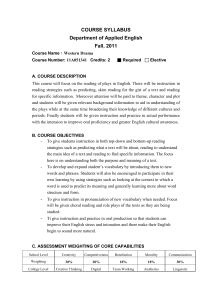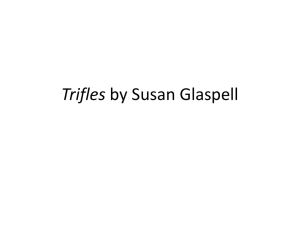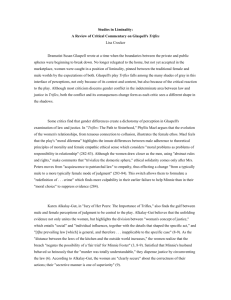American Theatre Feature
advertisement
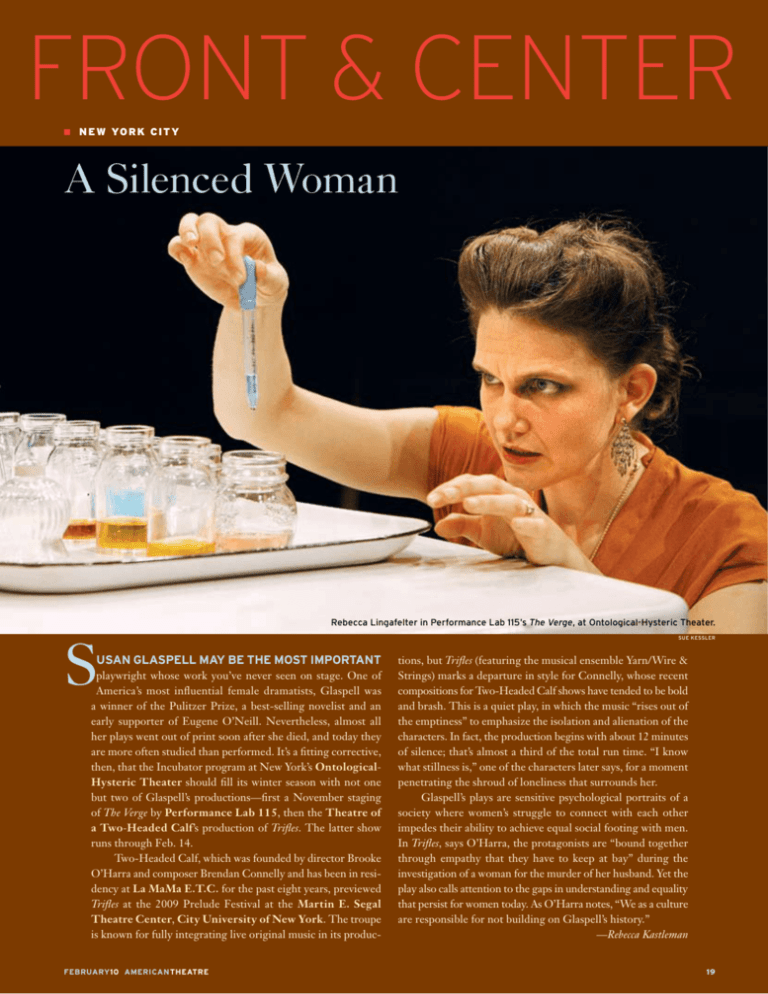
n n e w yo r k c it Y A Silenced Woman Rebecca Lingafelter in Performance Lab 115’s The Verge, at Ontological-Hysteric Theater. sue kessler usan Glaspell may be the most important playwright whose work you’ve never seen on stage. One of America’s most influential female dramatists, Glaspell was a winner of the Pulitzer Prize, a best-selling novelist and an early supporter of Eugene O’Neill. Nevertheless, almost all her plays went out of print soon after she died, and today they are more often studied than performed. It’s a fitting corrective, then, that the Incubator program at New York’s OntologicalHysteric Theater should fill its winter season with not one but two of Glaspell’s productions—first a November staging of The Verge by Performance Lab 115, then the Theatre of a Two-Headed Calf’s production of Trifles. The latter show runs through Feb. 14. Two-Headed Calf, which was founded by director Brooke O’Harra and composer Brendan Connelly and has been in residency at La MaMa E.T.C. for the past eight years, previewed Trifles at the 2009 Prelude Festival at the Martin E. Segal Theatre Center, City University of New York. The troupe is known for fully integrating live original music in its producFEBRUARY10 AMERICANTHEATRE tions, but Trifles (featuring the musical ensemble Yarn/Wire & Strings) marks a departure in style for Connelly, whose recent compositions for Two-Headed Calf shows have tended to be bold and brash. This is a quiet play, in which the music “rises out of the emptiness” to emphasize the isolation and alienation of the characters. In fact, the production begins with about 12 minutes of silence; that’s almost a third of the total run time. “I know what stillness is,” one of the characters later says, for a moment penetrating the shroud of loneliness that surrounds her. Glaspell’s plays are sensitive psychological portraits of a society where women’s struggle to connect with each other impedes their ability to achieve equal social footing with men. In Trifles, says O’Harra, the protagonists are “bound together through empathy that they have to keep at bay” during the investigation of a woman for the murder of her husband. Yet the play also calls attention to the gaps in understanding and equality that persist for women today. As O’Harra notes, “We as a culture are responsible for not building on Glaspell’s history.” —Rebecca Kastleman 19
